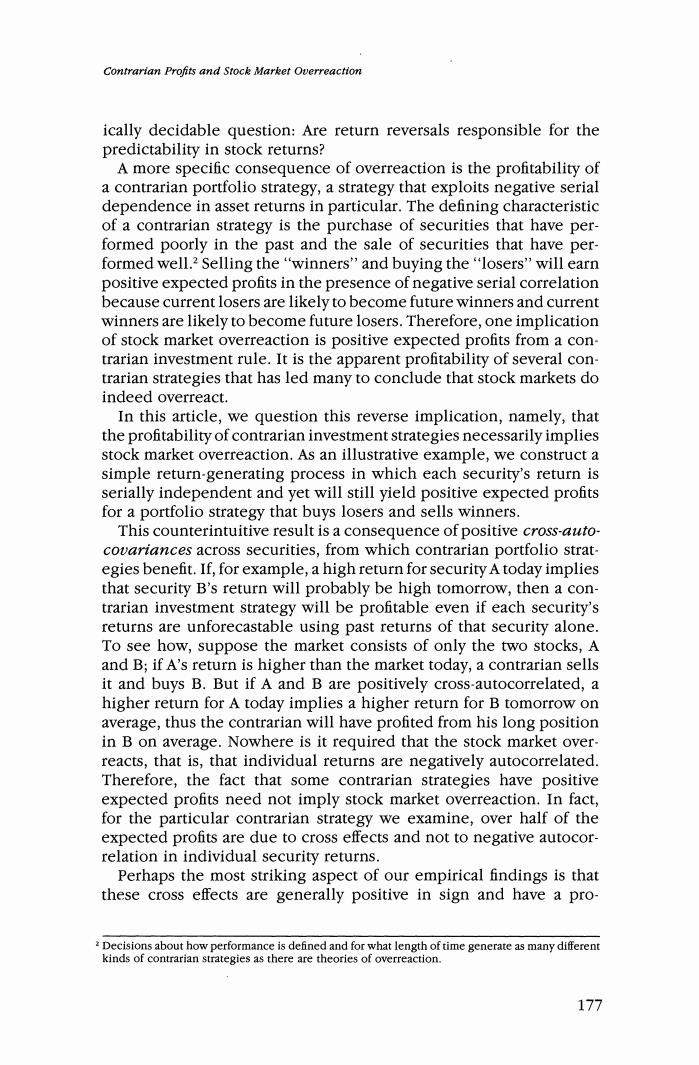正在加载图片...

Contrarian Profits and Stock Market Overreaction ically decidable question:Are return reversals responsible for the predictability in stock returns? A more specific consequence of overreaction is the profitability of a contrarian portfolio strategy,a strategy that exploits negative serial dependence in asset returns in particular.The defining characteristic of a contrarian strategy is the purchase of securities that have per- formed poorly in the past and the sale of securities that have per- formed well.2 Selling the"winners"and buying the"losers"will earn positive expected profits in the presence of negative serial correlation because current losers are likely to become future winners and current winners are likely to become future losers.Therefore,one implication of stock market overreaction is positive expected profits from a con. trarian investment rule.It is the apparent profitability of several con- trarian strategies that has led many to conclude that stock markets do indeed overreact. In this article,we question this reverse implication,namely,that the profitability of contrarian investment strategies necessarily implies stock market overreaction.As an illustrative example,we construct a simple return-generating process in which each security's return is serially independent and yet will still yield positive expected profits for a portfolio strategy that buys losers and sells winners. This counterintuitive result is a consequence of positive cross-auto- covariances across securities,from which contrarian portfolio strat- egies benefit.If,for example,a high return for security A today implies that security B's return will probably be high tomorrow,then a con- trarian investment strategy will be profitable even if each security's returns are unforecastable using past returns of that security alone. To see how,suppose the market consists of only the two stocks,A and B;if A's return is higher than the market today,a contrarian sells it and buys B.But if A and B are positively cross-autocorrelated,a higher return for A today implies a higher return for B tomorrow on average,thus the contrarian will have profited from his long position in B on average.Nowhere is it required that the stock market over- reacts,that is,that individual returns are negatively autocorrelated. Therefore,the fact that some contrarian strategies have positive expected profits need not imply stock market overreaction.In fact, for the particular contrarian strategy we examine,over half of the expected profits are due to cross effects and not to negative autocor- relation in individual security returns. Perhaps the most striking aspect of our empirical findings is that these cross effects are generally positive in sign and have a pro- Decisions about how performance is defined and for what length of time generate as many different kinds of contrarian strategies as there are theories of overreaction. 177